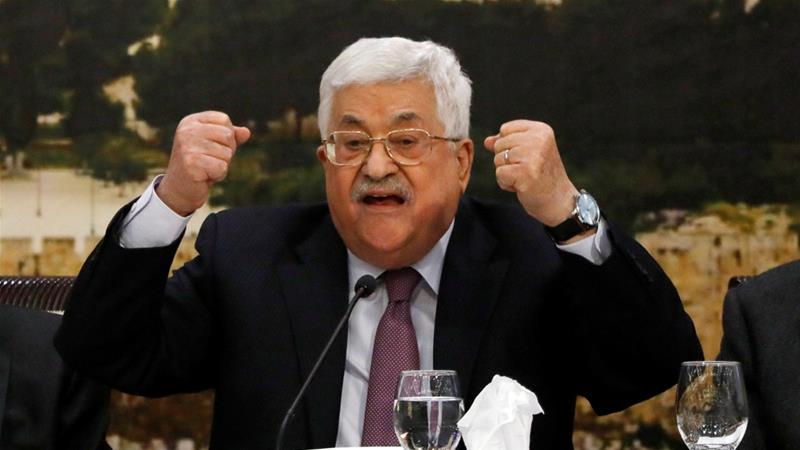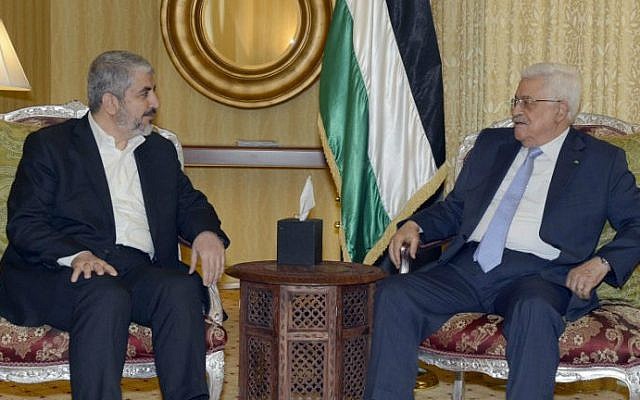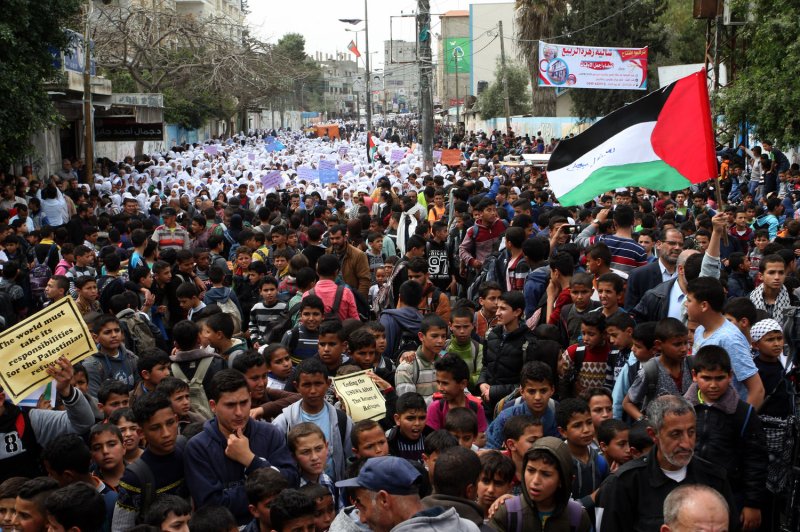Hamas and other Palestinian terror groups on Monday strongly condemned Palestinian Authority President Mahmoud Abbas for threatening to impose new sanctions on the Gaza Strip.
In a statement issued shortly after Abbas warned of the move in a speech before Palestinian leaders in Ramallah, Hamas said that his “irresponsible statements” were aimed at “bringing our people in the Gaza Strip to their knees at this difficult and dangerous phase.”
In his address, Abbas announced that he had decided to take “legal, national and financial measures” against Hamas to “protect the Palestinian national project.” He did not provide further details.
Last year, Abbas imposed a series of measures against the Gaza Strip that included suspending Palestinian Authority payments to Israel for electricity supplies to the coastal enclave. Abbas also cut off salaries to thousands of Gaza’s civil servants and forced many others into early retirement.
Hamas on Monday accused Abbas of working to “undermine the prospects of advancing the Palestinian national project and achieving national unity.”
The terror group that rules the Gaza Strip also accused Abbas of “exacerbating the separation between the Gaza Strip and West Bank, paving the way for the implementation of the scheme of chaos and [US President Donald] Trump’s deal of the century and Zionist projects.”
Trump has referred to his peace plan, the details of which have yet to be made public, as the “deal of the century.”
In its statement, Hamas accused Abbas of sabotaging the ongoing Egyptian effort to achieve Palestinian unity. “Abbas’s actions are destructive and dangerous,” the group charged, and called on the Arab League to urgently intervene to stop “this dangerous deterioration and prevent disaster” in the Palestinian internal arena.
Hamas also rejected Abbas’s allegations over its responsibility for last week’s
bombing of the convoy of Prime Minister Rami Hamdallah and General Intelligence Chief Majed Faraj in the northern Gaza Strip, and accused him of “tampering with the process of justice and investigation” into the incident.
Hamas also renewed its call for holding new presidential and parliamentary elections in the West Bank and Gaza Strip “so that the people would be able to choose their leadership.”
The Palestinian Islamic Jihad group said that Abbas’s remarks “endanger Palestinian unity and provide additional support for Israel’s blockade of the Gaza Strip.”
The terror group called on all Palestinian factions to “rally behind the resistance and protect it, and not conspire against it.”
Khader Habib, a senior Islamic Jihad official in the Gaza Strip, called for a Palestinian “intifada” against the “entire political system.” He, too, said that Abbas’s sanctions were aimed at “subjugating and humiliating the Palestinians and their resistance.”
Khaled Abu Hilal, leader of the Alahrar terror group, said he had never seen Abbas use such offensive language in response to Israeli “assaults and assassinations” against Palestinians.
Yasser Zaatreh, a Palestinian commentator staunchly opposed to Abbas, accused the PA president of behaving as if he were the enemy of the Palestinians. “Abbas does not want reconciliation with the Gaza Strip,” he argued. “He hates Hamas and [deposed Fatah leader Mohammed] Dahlan more than he hates the Zionist entity. For Abbas, the Gaza Strip is Hamas and Dahlan.”
The Popular Front for the Liberation of Palestine, one of several PLO terror groups, said that Abbas’s new measures were directed against the “reconciliation,” Hamas and the Palestinian “resistance” in the Gaza Strip. “Imposing the sanctions will lead to the collapse of the Gaza Strip.”
Meanwhile, several Palestinians took to social media to vent their anger against Abbas, denouncing him as a “whore,” “traitor,” “rat,” “dog” and “senile.” Some Palestinians called on Hamas to retaliate by outlawing Abbas’s Fatah faction in the Gaza Strip.
Fatah, for its part, came out in defense of Abbas. On its official Facebook page, the faction posted a photo of Abbas accompanied with the caption “We’re proud of you!”








